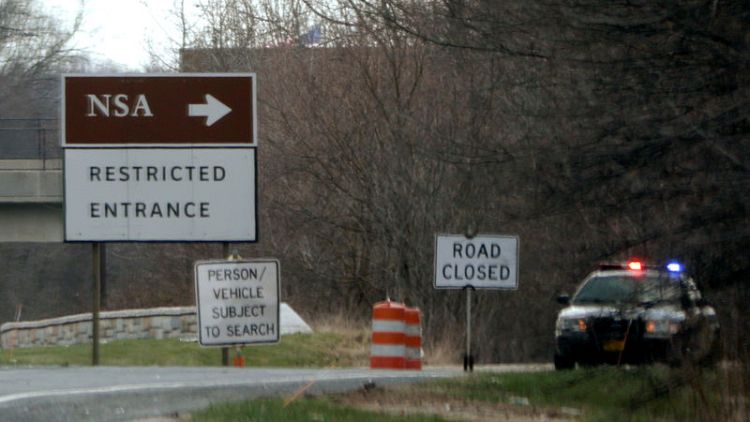By Sarah N. Lynch and Susan Heavey
WASHINGTON (Reuters) - A former intelligence analyst was arrested on Thursday over allegations he illegally obtained and disclosed classified national defence information about a U.S. drone strike programme to a journalist, the U.S. Department of Justice said.
The analyst, Daniel Everette Hale, 31, of Nashville, Tennessee, had worked at the National Security Agency (NSA) and the National Geospatial-Intelligence Agency (NGA), and began communicating with the reporter starting in 2013, the department said.
Classified documents were later published by the reporter's online news outlet, the government alleged.
The indictment does not name the publication or journalist; however, the description appeared to match that of Jeremy Scahill of the Intercept.
In October 2015, the Intercept published a series written by Scahill and other reporters called "The Drone Papers."
In that series, the Intercept revealed that it had a source that had leaked classified documents because the source felt the American public "has a right to understand the process by which people are placed on kill lists and ultimately assassinated."
The charges unsealed against Hale on Thursday marked the latest in a broad crackdown on media leaks by the Justice Department that started when Jeff Sessions was Attorney General.
During the Trump administration, the government has filed several criminal cases against leakers, including former intelligence analyst Reality Winner who divulged a report about Russian interference in the 2016 election also to the Intercept news website.
Jesselyn Radack, an attorney for Hale, told Reuters that the case against her client had been "dormant" for the last few years, but has since been revived.
"His case is part of a coordinated campaign to reinvigorate the draconian Espionage Act and deprive the public of information about some of our most controversial government programs," she said.
The Intercept, in a statement, said it would not confirm the identity of anonymous sources, but it condemned the administration for bringing the case.
The leaked documents at the heart of the case against Hale, the Intercept said, "are of vital public importance, and activity related to their disclosure is protected by the First Amendment."
Hale, who had served in the U.S. Air Force, is charged with five criminal counts, each carrying a maximum penalty of 10 years in prison, the Justice Department said.
According to the indictment, Hale was assigned to work at the NSA while serving on Air Force active duty from December 2011 to May 2013, and later that year also worked as a defence contractor assigned to the NGA.
In April 2013 while he was still at the NSA, prosecutors say Hale met a reporter at a book tour event in Washington.
The next month, Hale confided to a friend that the reporter wanted him to "tell my story about working with drones ... and the use of drones," according to the indictment.
After multiple meetings with the reporter, the government said, in February 2014 Hale printed six documents from his classified computer related to his work at NGA and then texted the reporter to see if they could meet in Washington.
The documents were later published by the reporter's online news outlet, the indictment says.
Hale is accused of printing a total of 36 top secret documents from his computer, nine of which were related to his NGA work.
Of those, he allegedly provided 17 to the reporter or to the reporter's news outlet.
(Reporting by Susan Heavey and Sarah N. Lynch; additional reporting by Mark Hosenball; editing by Bill Trott and James Dalgleish)
